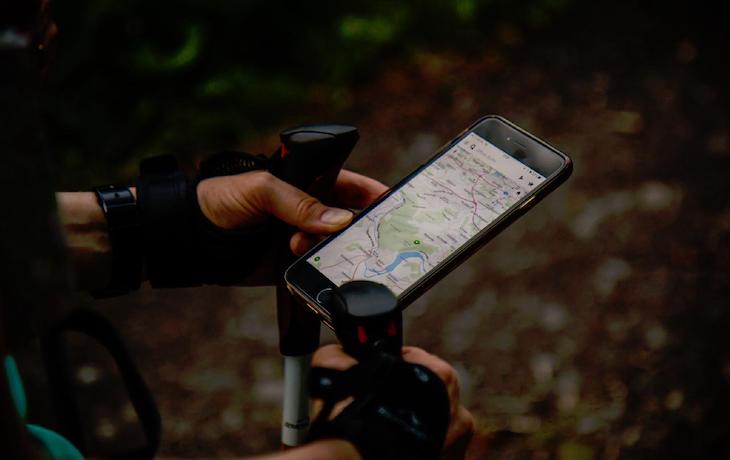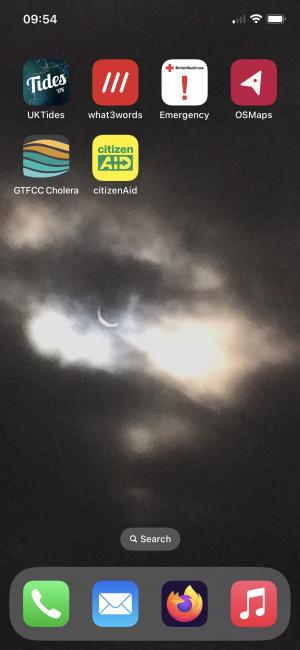Best survival apps for your phone

-
Comments (14)
-
Gideon ParkerStaff - October 12, 2021
Pasting some helpful comments from a reddit convo:
greggorievich–
Some other suggestions that I can elaborate on later if anyone is interested:- Wildfire/smoke apps for my province. (I guess add or substitute hurricane trackers or the like is relevant in your area.)
- Several apps to gather and convert GPS and coordinate data (including legal land descriptions).
- F-Droid alternate app store. Free/open source apps, with the ability to share them locally with no internet connection.
I used to have an app called Serval mesh that was a clever emergency communications solution by making a local mesh network, but it sort of depended on other people having the app too and it didn’t ever seem to get popular. Suggestions welcome for alternatives there.
I keep an app called Cargo Decoder installed.
You can enter the four digit codes on any of those cargo ID placards and it will tell you what it is. Tapping on the substance brings up information about it and precautions/dangers/response info.
There are other tabs for generic placards, and other relevant information like emergency numbers and the like.
So far I’ve only ever used it for curiosity to identify what’s in a truck I’m passing, but it’s great to have the info if I need it.
Another suggestion: A good, offline capable unit converter app is super handy. I have ConvertPad, I’m not sure what options are out there.
-
greggorievich - October 12, 2021
Oh, boy! Credit!
Thanks for saving me the effort in coming here to repeat myself!
-
Gideon ParkerStaff - October 12, 2021
Very good suggestions! Thanks for taking the time to write up your recommendations.
-
Steve Santini - October 12, 2021
This is a great start to setting up your phone as a useful tool in times of emergency. I am still working through how to set things up to separate ’emergency’ from ‘every day’, but this gave a great head start to important apps and phone settings.
-
Gideon ParkerStaff - October 12, 2021
Glad to hear you enjoyed the article. When you say that you are still working on how to set things up separate between emergency and every day, is that with phone apps?
You know how you can have multiple pages of apps on your homescreen? I like to have one page for tools and productivity, then I swipe to the right and have another page for fun and entertainment, then another page for work, and another page for emergency and preparedness apps.
You can also group multiple apps within folders and make a Preparedness folder.
Those are some things I have done, and I hope they spark some ideas for you.
-
Steve Santini - October 12, 2021
That is the process I am following, setting up a dedicated page. But there are a lot of logins to set up, scanning through the apps, and some want subscriptions. It takes time, that’s all.
-
-
greggorievich - October 12, 2021
This was a good reminder that I need to update my backup phone.
Another random item that occurred to me is an offline capable unit converter app. I’m not sure if it’s more “daily usefulness” or “preparedness”, but lots of the physical tools I carry are both, so I figure apps can be both too.
-
Gideon ParkerStaff - November 9, 2021
Pasting a note from a reader:
“Suggest what3words as a great way to exchange location information. It’s a little better than Google’s system because it uses real words. (IMHO)
INOVATION: what3words saves lives and resources”
Here are my thoughts:
what3words (iOS, Android, free) is just about the easiest way to share your precise location. The company has mapped out the entire world into a 10ftX10ft grid and has assigned each 10 foot location 3 words to designate it.
So if you son is lost and he pulls up his app and says, dad I am at tree.unicorn.watermelon. You can type that into the app and know the exact 10X10 spot where he is located and then use Google maps to drive to that location.
This is an excellent idea to share your location if you were in the middle of a field or on a particular stretch of road where there are no visible road signs. You can even use it to designate a particular area of a building in which you are located.
The one downside that I can see and why we didn’t initially include it with our article during research is because of lack of adoption. If you were to mention your three word location to 911 dispatch or someone you are meeting up on Craigslist to buy a TV from, will they know what you are talking about? It’s great that some emergency services are becoming aware of and using it, as shown in that link up above. But for now, I see it mostly being useful if many of your family and friends are also using and are familiar with it.
-
Black Club - March 15, 2023
What 3 Words is becoming quite common in the UK for emergency services and delivery companies
-
-
AnnaConways - March 14, 2023
It’s great to see an official discussion on the best mobile apps. There are so many out there that it’s hard to know which ones are worth downloading. I recommend checking out the QR scanner and OCR software from Smart Engines. It’s a reliable app lets you easily scan QR codes and recognize text using your smartphone’s camera. It’s especially helpful if you need to capture information from a document or image quickly. Give it a try, and let me know what you think!
-
Black Club - March 15, 2023
So far on my “emergency” screen:
Emergency (British Red Cross)
https://www.redcross.org.uk/get-help/prepare-for-emergencies/free-emergency-apps
Cholera (has details on sterilising water)
Citizen Aid (active shooter etc)
-
Eric - August 20, 2023
Watch Duty is a great phone app for wildfire tracking/alerting. This app is backed by a 24/7 staff who review wildfire data, listen to emergency radios, and ensure that app users receive the best alerts and information possible.
-
ChrisC - August 20, 2023
Ditto on the Watch Duty rec. It has been really useful for me in SoCal.
-
-
